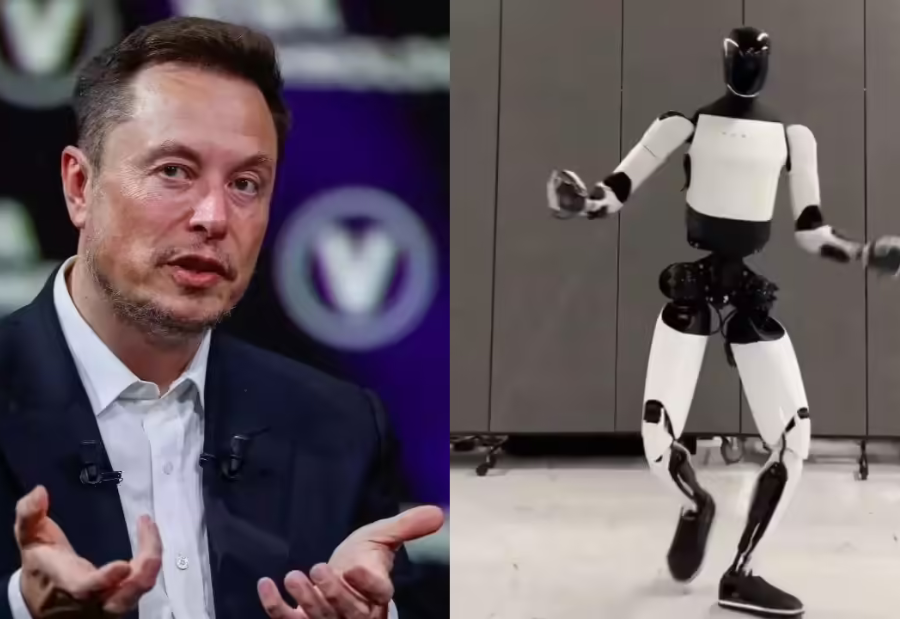Tesla CEO Elon Musk has expressed unease over his own company’s ambitious plan to build a million humanoid robots, raising questions about control, governance, and the potential implications of what he called a future “robot army.”
Speaking during Tesla’s recent earnings call, Musk reflected on the scale of the company’s Optimus program, a humanoid robot project he believes could one day transform global productivity and redefine the nature of labour. But amid his characteristic optimism, the billionaire struck a note of caution.
“If we build this enormous robot army, I want to make sure that I have strong influence over it,” Musk said, half in jest yet notably serious about the risks of such autonomous systems.
From dream to deployment: The Optimus timeline
Tesla plans to introduce a production-intent prototype of the Optimus robot by February–March 2026, with mass production slated for late 2026. According to Musk, the long-term goal is to bring the cost of each unit down to between $20,000 and $30,000, potentially making humanoid robots accessible for businesses and consumers alike.
The scale of this vision aligns with Tesla’s proposed performance-linked compensation plan for Musk, which could grant him up to $1 trillion in stock awards if the company meets several aggressive milestones, including manufacturing one million Optimus units.
Why Musk is worried?
While Musk is known for his audacious approach to technology, from reusable rockets to self-driving cars, his remarks about control underscore a deeper concern: who governs machines capable of independent action?
As Tesla accelerates its robotics development, Musk’s anxiety highlights a critical governance dilemma: once autonomous systems reach industrial or social scale, ensuring alignment, that is, keeping AI systems under human intent, becomes both a technical and ethical challenge.
Industry analysts say this concern is not misplaced. Large-scale deployment of humanoid robots raises questions of liability, data privacy, job displacement, and human oversight. Musk himself acknowledged that influence over such systems must be built into the company’s governance and design principles.
The big bet on robotics
For Musk, Optimus is more than an engineering pursuit; it is central to Tesla’s next decade of growth. He has previously suggested that humanoid robots could address global labor shortages, assist in healthcare, and even help eliminate poverty.
In his characteristic futurist tone, Musk called Optimus a potential “infinite money glitch,” a metaphor for the limitless productivity he envisions if robots can perform most forms of human labor.
But that promise comes with a paradox: if the Optimus project succeeds at scale, it could reshape entire industries, forcing governments and regulators to reconsider frameworks around automation, employment, and AI ethics.
A new frontier with old questions
As Tesla doubles down on robotics, Musk’s apprehension reflects an emerging truth across the AI and automation landscape: innovation at scale demands equally bold thinking about control, responsibility, and impact.
The race to build a “robotic workforce” is no longer science fiction; it is the next frontier of capitalism and governance. For Musk, ensuring that frontier remains under human command might be the most important challenge yet.
SEO Keywords: Elon Musk robot army, Tesla Optimus, Tesla humanoid robot, Elon Musk AI concerns, Tesla robot production 2026, Elon Musk news, Tesla robotics project, AI governance, humanoid robotics, technology news India.
Also read: Viksit Workforce for a Viksit Bharat
Do Follow: The Mainstream formerly known as CIO News LinkedIn Account | The Mainstream formerly known as CIO News Facebook | The Mainstream formerly known as CIO News Youtube | The Mainstream formerly known as CIO News Twitter |The Mainstream formerly known as CIO News Whatsapp Channel | The Mainstream formerly known as CIO News Instagram
About us:
The Mainstream formerly known as CIO News is a premier platform dedicated to delivering latest news, updates, and insights from the tech industry. With its strong foundation of intellectual property and thought leadership, the platform is well-positioned to stay ahead of the curve and lead conversations about how technology shapes our world. From its early days as CIO News to its rebranding as The Mainstream on November 28, 2024, it has been expanding its global reach, targeting key markets in the Middle East & Africa, ASEAN, the USA, and the UK. The Mainstream is a vision to put technology at the center of every conversation, inspiring professionals and organizations to embrace the future of tech.




